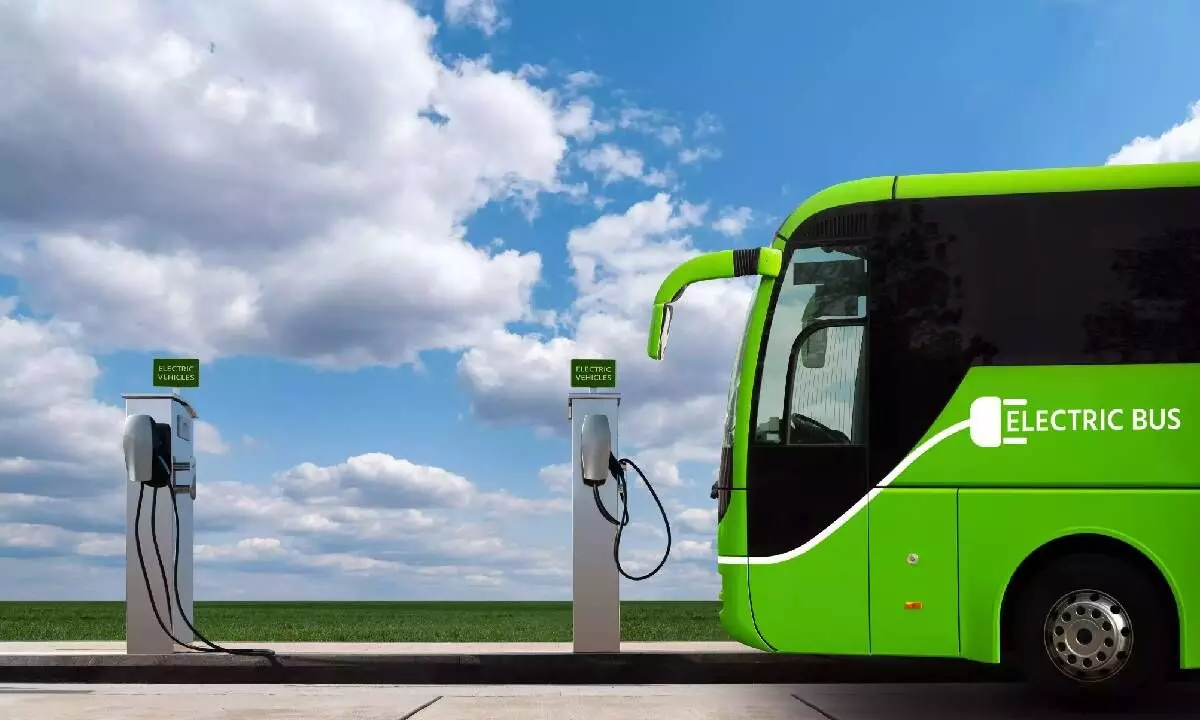Electric buses to account for 11-13% of new sales
Government subsidies and evolving technologies to play a role in further reducing the capital costs involved in e-buses, says ICRA report
image for illustrative purpose

New Delhi: Electric buses are expected to account for up to 13 per cent of new bus sales by FY-2025, rating agency ICRA said on Monday. Many state Electric Vehicle (EV) policies have announced specific targets and timelines for e-bus adoption, thereby creating a road map for electrification, it noted. With significant operational savings vis-à-vis conventional diesel buses, ICRA said it expects the demand for e-buses to continue to rise. “ICRA foresees electric buses (e-buses) to be at the forefront of India’s electrification drive, with the segment expected to witness healthy traction going forward. ICRA estimates e-buses to account for 11–13 per cent of new bus sales by FY2025,” it said in a report.
According to the report, it expects government subsidies and evolving technologies to play a role in further reducing the capital costs involved in e-buses. The traction in the e-bus segment is already visible over the past couple of years, with e-bus volumes as well as penetration levels improving consistently to 7 per cent in FY2023, ICRA noted. Steady progress has been made towards meeting the e-bus deployment targets under the Faster Adoption and Manufacturing of Hybrid and Electric Vehicles (FAME) scheme, and this is likely to gain pace over the coming months till the scheme expires in March 2024.
ICRA noted that the government has sought to spur e-bus adoption through bid aggregation under tenders floated by Convergence Energy Services Limited (CESL). With the enhanced volumes under these tenders due to demand aggregation, there was healthy interest and participation by the Original Equipment Manufacturers (OEMs) in the first two tenders, even without subsidies on offer in the second tender, it stated. “However, CESL’s third tender saw limited OEM participation due to a lack of a payment security mechanism and a dry lease model of operation proposed for it, and had to be subsequently scrapped. Addressing these concerns of the OEMs would be critical to ensuring the increased pace of e-bus adoption in the country,” it added.

